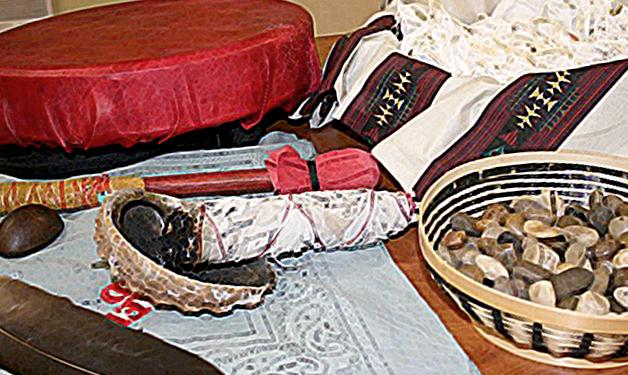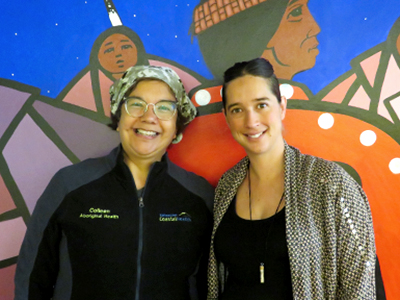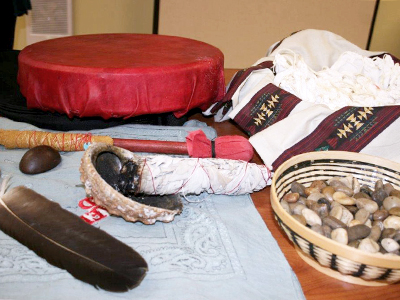
Researchers are holding focus groups with Indigenous women to improve health care services.
“Historically, Indigenous women’s voices have not been heard in the health care system, and their opinions were not sought,” says Colleen Stewart, a researcher at the Vancouver Coastal Health Research Institute (VCHRI). While much progress has been made, more work is needed to provide culturally appropriate care for Indigenous women.
In their study—Indigenous women's voices in health care planning and service delivery—Stewart and fellow VCHRI researcher Belle Selkirk and research mentor Brittany Bingham are investigating how to improve health outcomes for Indigenous women. Through a series of focus groups, they will ask Indigenous women participants from the Lower Mainland about their health needs. They will also create recommendations for new health services, policies and programs within Vancouver Coastal Health (VCH) to meet these needs.
“This is a call-to-action to address historic shortfalls in the care and consideration of Indigenous women and, by extension, Indigenous children, youth and communities.”
Their study will include holding talking circles—when a talking stick is passed around a group of people and only the individual with the stick can speak while the others listen. These talking circles with Indigenous women will create a culturally appropriate space for open dialogue and relationship-building, says Stewart.

The Indigenous methodology Stewart and her team will employ is a more holistic approach to health, she explains. It is based on the medicine wheel, which considers the emotional, physical, spiritual and cognitive aspects of every person. The discussion questions for the talking circles will also be filtered through this lens, she says, “but we really want the women to identify their priorities themselves.”
Community driven research with Indigenous women
Only recently have major policy shifts put into motion an era of reconciliation with Indigenous communities. The United Nations Declaration on the Rights of Indigenous Peoples, adopted in 2007, created a global framework in support of Indigenous peoples’ survival, dignity and well-being. In 2008, the Truth and Reconciliation Commission was established to hear the facts of the residential school system in Canada and lay a foundation for reconciliation moving forward.
To continue along this path will require the ongoing inclusion of Indigenous voices in the decision-making processes that shape the direction of our government institutions, such as health care, says Stewart.
“Today, we are at a point in time when the voices of Indigenous women should be integrated into the planning of health care services and policies.”
Some of the traditional practices currently offered at VCH include drumming circles and smudging ceremonies—when the smoke from burning plants, such as sage, sweet grass or juniper, is used to purify the body, the mind or a space. Cedar boughs and eagle feather brushings are also traditional Indigenous cleansing and purification practices that take place in spaces at VCH.
“I have seen the calming effect the smudging ceremonies we conduct at VCH can have on people during what is often a stressful time,” says Stewart. “It helps people cope with their health conditions and concentrate on getting better.”

Stewart anticipates that this research will contribute to the growth and enhancement of Indigenous healing practices in a health care setting, particularly in a way that is sensitive and responsive to the needs of Indigenous women.
“This research will help us further develop cultural safety and inclusivity at our health care facilities. Because it is focused on listening to Indigenous women face-to-face, it can also help us form better relationships and continue to foster healing with Indigenous communities.”


